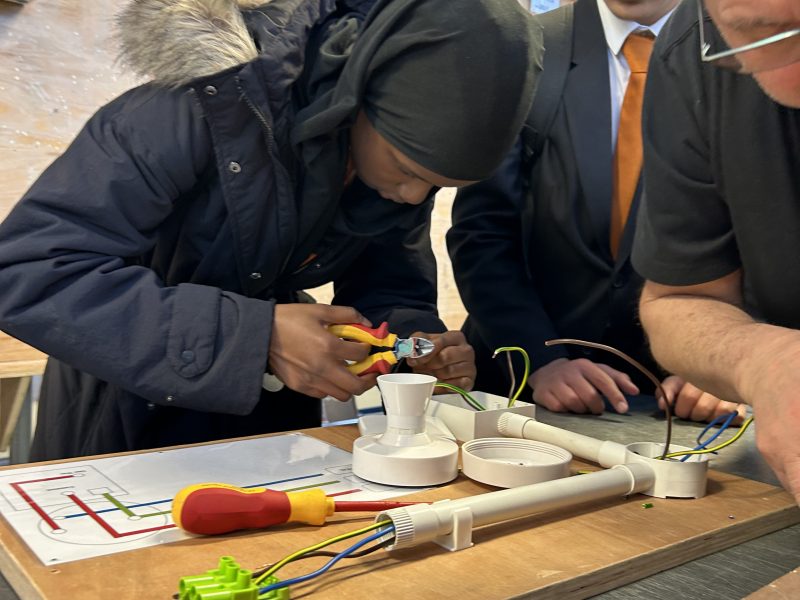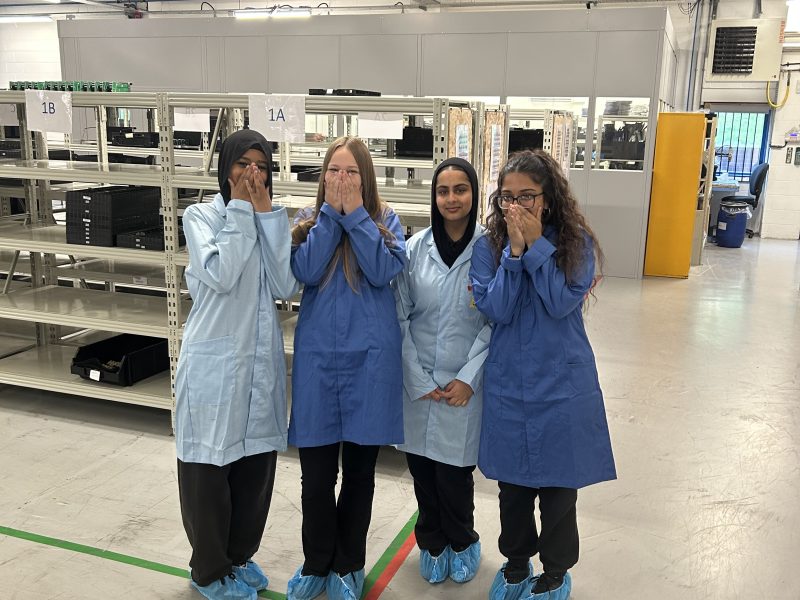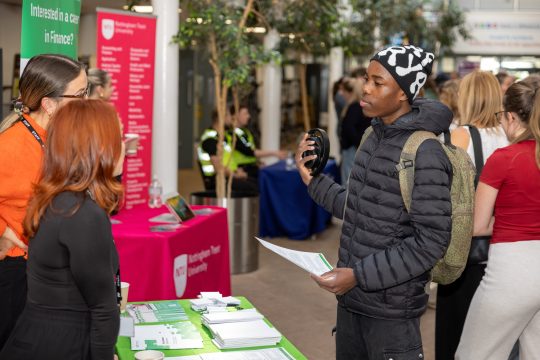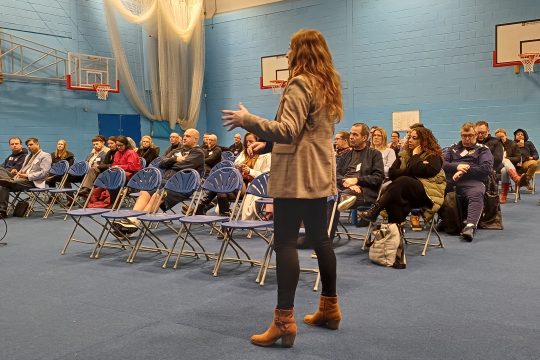Making work experience meaningful for young people at risk of becoming NEET
In this Q&A, Jo Sykes, Director of Careers Education, Information, Advice and Guidance at Co-op Academies Trust, and Rebecca Fox, Vice Principal and Careers Lead at Co-op Academy Leeds, tell us how they are approaching implementing the updates to the Gatsby Benchmarks that focus on meaningful, varied and inclusive encounters and experiences of workplaces.
Tell us about Co-op Leeds Academy.
The school has over 970 students and is located in central Leeds. It has high levels of deprivation with a large number of parents who are not in employment. Over 70 different languages are spoken at the school, with a large proportion of students having English as an additional language.
We also have a significant Gypsy, Roma and Traveller community. Traditionally these communities share cultural values that may influence women’s roles and career paths, where women have been the primary caregivers and responsible for raising the family. As an alternative, Leeds Co-op Academy is proactively working with an identified group of girls to raise their aspirations and expose them to a wide range of different career sectors.
What is the Co-op Leeds Academy doing to implement the updated benchmarks?
We have a brilliant and passionate careers team at the school, who have made themselves familiar with the updated benchmarks and have already started to implement them ahead of it becoming statutory to do so in September 2025.
One of the areas they’ve already looked at is work experience. This has involved ensuring the experiences and encounters of workplaces all our young people, regardless of their backgrounds, are provided with are aligned with the definition of ‘meaningful work experience’ which has been added to Benchmark 5.
You told us about some challenges that your school faces; can you tell us about how you’ve adapted your work experience programme to meet the specific needs of your students?
One of the key things we have adapted, in line with the updated benchmarks, is how we deliver meaningful, well-sequenced work experience and encounters during KS3. Here’s a quick flavour of what our updated programme looks like:
Year 7: We want to get pupils excited and engaged in thinking about their careers; we want to plant the seeds in Year 7, so we equip them with an employability booklet which introduces them to five essential workplace skills, gives them the opportunity to learn about different jobs and how these skills are necessary to those roles and encourages them to reflect on their own aspirations and start to take ownership of their career journey.
Year 8: Each year, one of our Co-op partners designs a one-day enterprise challenge; in 2024-25, it was Unilever. They offered students the chance to gain firsthand experience in launching an in-store retail execution project. This activity was designed to equip them with essential skills in planning, creativity, interpreting insights, budgeting and presenting. Students were initially presented with a work-related brief and then given time to work towards a solution, with various prompts from Unilever along the way. One group’s ideas ended up being adopted and implemented by Unilever!
Year 9: We organise a careers safari day. We get a carousel of local employers to come into the Academy to deliver one-hour workshops covering work-related essential skills and qualities, what different jobs do on a day-to-day basis and career pathways. The students then get the opportunity to take part in a work-related task in which they have to create, develop or design something based on a brief and receive feedback on their efforts at the end of the day.

New statutory guidance – structured around the updated benchmarks – asks schools to start planning to deliver a week’s worth of work experience for students in Year 10-11. What are your plans for this?
Following the new statutory guidance being published in May, we are strategically planning to implement Key Stage 4 face-to-face work placements in future, whilst awaiting further guidance from the Department for Education to support this.
Currently we are progressive in how we sequence the careers programme in Key Stage 3 and, in Year 10, we build on this to deliver a meaningful experience of the workplace.
Many of our students won’t be able to access work experience in the traditional sense for various reasons, which may include things like neurodiversity, physical disability or safeguarding risks. It can’t be a ‘one size fits all’ approach (one week of work experience at a local employer). So, we’ve been adaptable and creative in our approach to tailor it to meet our students’ needs.
Instead of concentrating it all in one week, we design it so that there are 12 sessions over Year 10. This includes identifying what the student is interested in and matching them up with an employer who will come in numerous times over the year to deliver interactive sessions about their industry, roles and skills needed. They will also give students real-life projects to complete. The 12 sessions include engagement with universities; trips to visit campuses if possible and, if not, university representatives come to us.
You’re part of the equalex pilot – can you tell us what that is and how the pilot has gone?
We have three schools in the Co-op Trust that are part of the equalex pilot. Equalex is a progressive approach to modern work experience, developed by the Careers & Enterprise Company (CEC) to deliver a framework of learning outcomes via a multi-year, multi-experience model.
Equalex ensures that we have an embedded programme that develops knowledge, skills and behaviours to enable all our young people to gain experiences of work that are genuinely meaningful across Key Stage 3 and Key Stage 4.
We’ve found it really useful as it is underpinned with learning outcomes that deliver intent and purpose and can be easily used to develop a sequential and progressive offer. I would encourage all schools and colleges to try equalex as a way of delivering Benchmark 6 whilst also impacting on many of the other benchmarks.
Tell us why you’re championing the updated benchmarks?
I think the Gatsby Benchmarks were working well already; but these updates elevate and sharpen them to make careers education even more effective for even more young people. This is crucial for students in a school like Co-op Academy Leeds, where so many of our parents are NEET themselves. It’s vital that we deliver a well-sequenced careers programme, underpinned by the refreshed benchmarks, to students from Year 7 to break the cycle and ensure they don’t become NEET themselves.





